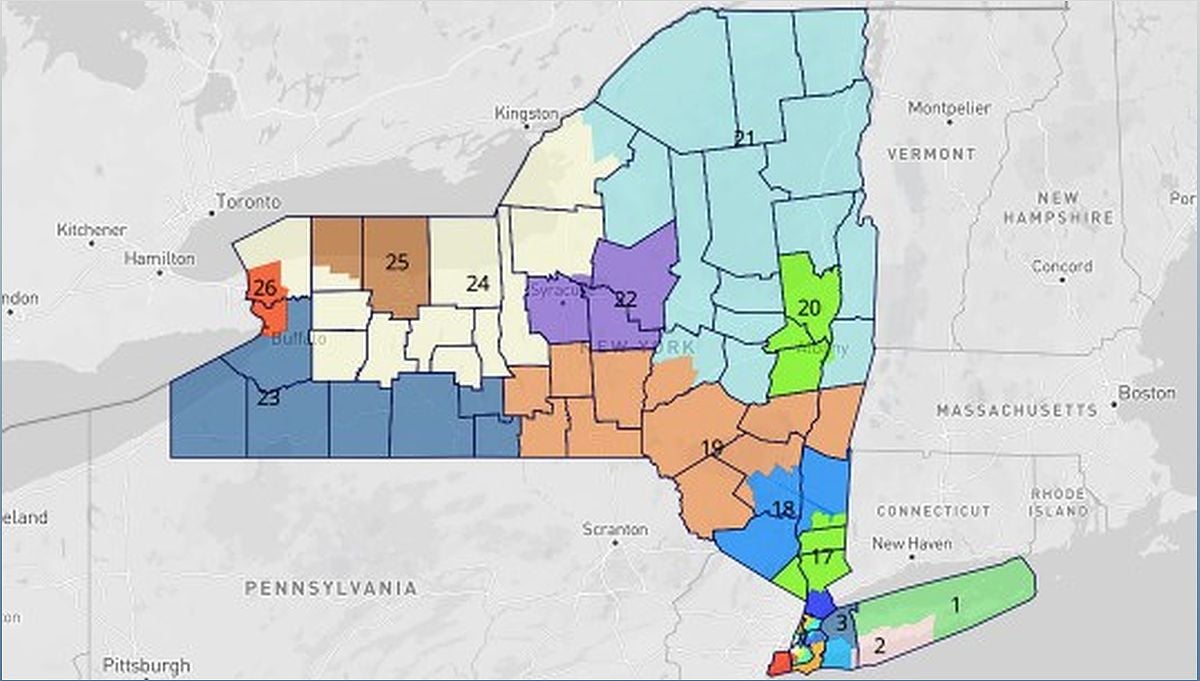The Importance of Maintaining Fair Congressional District Lines
The upcoming special election to fill the seat of expelled Congressman George Santos has sparked a debate about the importance of maintaining fair and competitive congressional district lines. Last year, fraudulent activities tainted the election, leading to the expulsion of Santos. To ensure fair representation and prevent gerrymandering, the current district lines, drawn by a Carnegie Mellon special master expert, should remain in place for future elections. This article explores the significance of maintaining these district lines and the need for the Independent Redistricting Commission to adhere to its constitutional mandate. By upholding fair maps, we can promote competition, discourage favoritism, and uphold the integrity of our democratic process.
The Impact of Fraudulent Elections
Fraudulent elections, like the one that led to the expulsion of Congressman George Santos, undermine the integrity of our democratic process. When individuals manipulate the system for personal gain, it erodes public trust and hampers fair representation. This highlights the importance of maintaining fair district lines to prevent such fraudulent activities.

By ensuring that district lines are drawn in a compact, contiguous, and competitive manner, we can minimize the chances of fraud and manipulation. Fair district lines promote transparency, accountability, and equal representation for all voters.
The Role of the Independent Redistricting Commission
The Independent Redistricting Commission (IRC) plays a crucial role in maintaining fair district lines. Comprised of bipartisan members, the IRC is responsible for drawing district boundaries that are free from political bias and favoritism.
By adhering to its constitutional mandate, the IRC can ensure that district lines are not drawn to discourage competition or favor incumbents or specific political parties. The IRC must consider the maintenance of existing districts, political subdivisions, and communities of interest when creating these lines.
However, the recent court decision has ordered the IRC to restart the process and issue new maps. This decision has raised concerns about the potential for further gerrymandering and the need to protect the integrity of the redistricting process.
The Importance of Fair and Competitive District Lines
Fair and competitive district lines are essential for upholding the principles of democracy. These lines ensure that voters have equal representation and that their voices are heard in the political process.
By maintaining compact and contiguous district lines, we can prevent the manipulation of boundaries to favor specific candidates or parties. Fair district lines encourage healthy competition, allowing voters to choose their representatives based on merit and policy positions.
Moreover, fair district lines promote accountability among elected officials. When districts are drawn to be competitive, politicians are incentivized to listen to their constituents and work towards their best interests.
The Need for Consistency and Stability
Consistency and stability in district lines are crucial for maintaining a fair and reliable electoral system. When district lines are constantly redrawn, it creates confusion among voters and candidates.
By keeping the current Carnegie Mellon special master maps in place for future elections, we can provide stability and ensure that voters understand the boundaries of their districts. This allows candidates to plan their campaigns effectively and prevents any undue advantage or disadvantage caused by frequent redistricting.
Consistency in district lines also allows for the analysis of voting patterns and demographic changes over time, enabling policymakers to make informed decisions based on accurate data.
